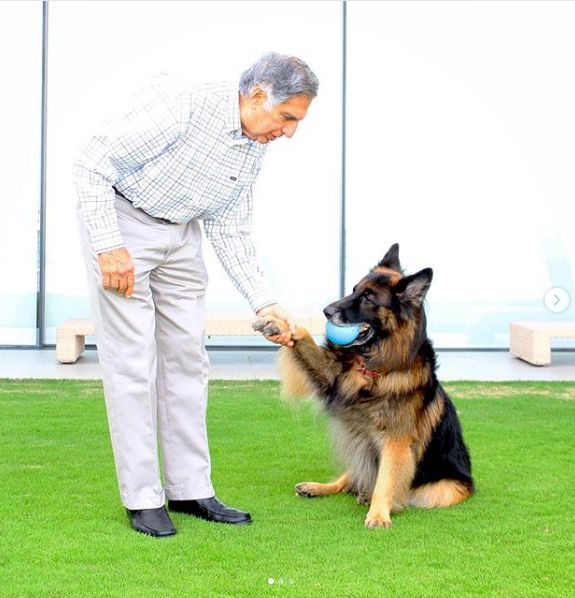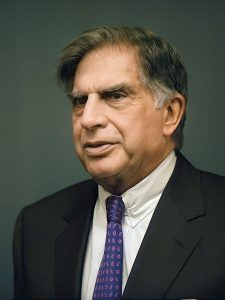Ratan Naval Tata, an emblematic figure in Indian business, has long been a beacon of leadership, innovation, and philanthropy. His journey through the corporate world and his transformational impact on various industries make him a quintessential visionary architect of modern India. This article delves into his remarkable life, his contributions to the Tata Group, and his enduring legacy.
Early Life and Education
Born on December 28, 1937, in Mumbai, Ratan Tata is the great-grandson of Jamsetji Tata, the founder of the Tata Group. His parents, Naval and Sonoo Tata, separated when he was just ten years old, and he was subsequently raised by his grandmother, Lady Navajbai. Ratan Tata’s early education was at the prestigious Campion School in Mumbai and later at the Bishop Cotton School in Shimla. He then attended Riverdale Country School in New York before pursuing a degree in architecture from Cornell University. He later completed the Advanced Management Program at Harvard Business School in 1975.
Ascending the Corporate Ladder
Ratan Tata joined the Tata Group in 1962, initially working on the shop floor of Tata Steel in Jamshedpur. This hands-on experience at the grassroots level equipped him with a deep understanding of the business and the challenges faced by the workforce. His ascent within the Tata Group was marked by his integrity, visionary thinking, and an unwavering commitment to excellence.
In 1991, Ratan Tata succeeded J.R.D. Tata as the chairman of Tata Sons, the holding company of the Tata Group. This transition marked a significant shift in the group’s approach to business, with Ratan Tata steering the conglomerate towards globalization and modernization.
Transforming the Tata Group
Under Ratan Tata’s leadership, the Tata Group underwent a transformative journey. He spearheaded the consolidation of the group’s operations, focusing on synergy and efficiency. One of his notable initiatives was the restructuring of Tata companies, which streamlined their operations and aligned them with the group’s overarching strategic vision.
Ratan Tata’s tenure was characterized by a series of bold acquisitions that positioned the Tata Group as a global powerhouse. The acquisition of Tetley Tea in 2000, Corus Group in 2007, and Jaguar Land Rover in 2008 were landmark deals that not only expanded the group’s global footprint but also showcased India’s growing prowess in international business.
Innovation and Social Responsibility
Ratan Tata’s vision extended beyond corporate success. He was a strong proponent of innovation and social responsibility. His dream of producing an affordable car for the masses led to the creation of the Tata Nano, which, despite its mixed commercial success, was a testament to his commitment to innovation and inclusive growth.
Philanthropy and social responsibility were integral to Ratan Tata’s ethos. Under his leadership, the Tata Group invested significantly in community development, healthcare, and education. The Tata Trusts, one of India’s oldest and most prominent philanthropic organizations, continued to play a crucial role in addressing various social issues, thanks to his guidance.
Challenges and Triumphs
Ratan Tata’s journey was not without challenges. The global financial crisis of 2008 tested the resilience of the Tata Group, particularly with the acquisition of Corus and Jaguar Land Rover. However, his strategic vision and unwavering determination saw the group navigate these turbulent times successfully. The revival of Jaguar Land Rover as a profitable entity stands as a testament to his leadership.
Ratan Tata retired as chairman of Tata Sons in 2012, passing the baton to Cyrus Mistry. However, his legacy continues to inspire generations of entrepreneurs and business leaders. He remains actively involved in various capacities, including as Chairman Emeritus of Tata Sons and a philanthropist, contributing to causes close to his heart.
Ratan Tata’s influence extends beyond the business realm. He is revered for his ethical leadership, humility, and commitment to societal welfare. His vision of a modern, progressive India, driven by innovation and inclusive growth, continues to shape the aspirations of millions.
Conclusion
Ratan Tata’s life and career are a testament to the power of visionary leadership. His transformative impact on the Tata Group, his commitment to innovation, and his unwavering dedication to social responsibility have cemented his place as a true architect of modern India. As the nation continues to evolve and aspire for greater heights, Ratan Tata’s legacy serves as a guiding light, inspiring future generations to dream big and lead with integrity.

